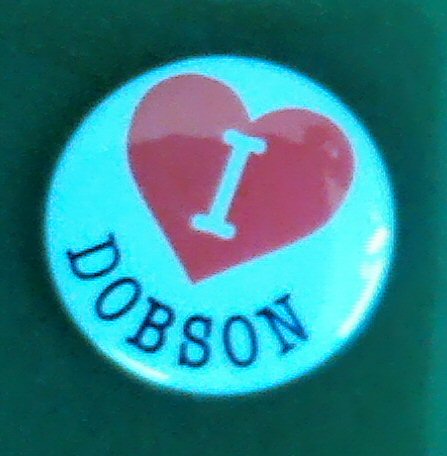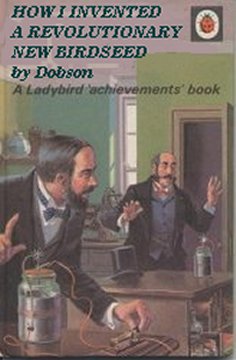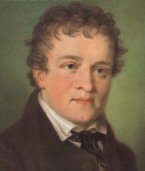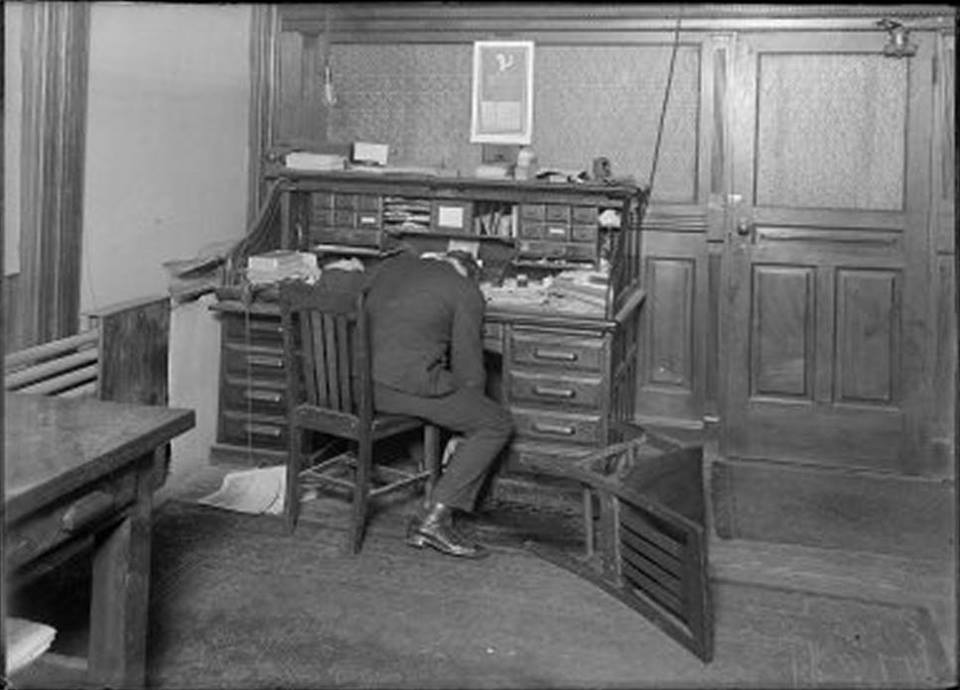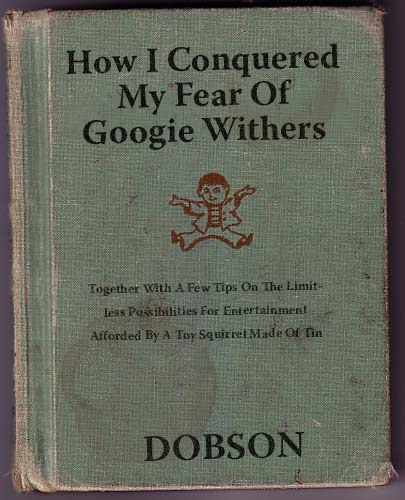A further nugget from the archives. One In A Series Of Hiking Pickles first appeared on this day eight years ago.
Dobson lived in the era before mobile phones, of course, so when he found himself imperilled in an isolated spot he had to harness every last scrap of ingenuity to summon help. You or I would simply make a call on our mobile – well, you would, but I wouldn’t, because I do not own a mobile phone and never shall, for they are an abomination unto me – but this was not an option for Dobson, so what did he do?
Let us take a closer look at the circumstances. It was a Tuesday in February. Football fans were grieving the loss of the Busby Babes in the Munich Air Disaster, Pope Pius XII had declared that Saint Clare was to be the patron saint of television, and little blind David Blunkett was just eleven years old. Meanwhile, Dobson got lost on an ill-advised hiking expedition and found himself exhausted, in a spinney, menaced by feral goats. The out of print pamphleteer had also managed to get himself hopelessly entangled in a thicket of thorny brambly creeping greenery rife with puffy spiders and venomous beetles. That’s the kind of spinney it was, at least twenty miles from the nearest village, and with no paths nor country lanes leading anywhere close to it. There was, it is true, a big pylon a couple of dozen yards away, but it was a lone pylon, unconnected to any kind of electrical grid or other wiring system, a pylon the purpose of which was unknown, and it was a pylon of rust, suggestive of abandonment and disuse.
This was not the first time Dobson had been in a hiking pickle, and it would not be the last. Indeed, late in life he had enough material to furnish a pamphlet entitled An Anthology Of Disastrous Hiking Mishaps Cobbled Together From A Lifetime Of Ill-Starred Rustic Pursuits (out of print). What was significant about this particular pickle was the manner in which Dobson succeeded in extricating himself from it.
This was the period during which he had joined an experimental knitting circle, and as luck would have it he had in his noddy bag that day his latest project. It was an interpretation, in wool, of The Wreck Of The Deutschland by Gerard Manley Hopkins. Dobson realised that, when fully unravelled, the yarn would stretch for miles. He sat down in the brambles, lit his pipe, took the scrunched-up woollen masterpiece out of his noddy bag, and unravelled, unravelled, unravelled. Two hours later he was still unravelling. The sun was setting by the time he was done, but Dobson had no fear of the night, for he was sanguine.
Frequently Asked Question : Why didn’t the pamphleteer use his portable metal tapping machine to call for help?
Answer : He was unable to use his portable metal tapping machine because there was no ground-level pneumatic hub within reach.
The wool fully unravelled, Dobson tapped out his pipe on a stone and beckoned to one of the feral Toggenbergs. The goats were still gathered in a gang on the edge of the spinney, and it is a mystery why they had not attacked the bramble-trapped pamphleteer. In the Anthology, Dobson suggested that a combination of acrid pipe smoke, unravelled wool, and his sanguine nature had deterred the goats, but it seems that for once he was being modest. Almost certainly, the decisive factor was Dobson’s eerie ability to mesmerise goats, especially Toggenbergs. It is a skill which has not been much remarked upon, possibly because Dobson himself made light of it, and – curiously – never devoted a pamphlet to it. But he had been practising goat mesmerisation since he was a babe in arms, and now his expertise paid off. Beckoning a Toggenberg, as I said, Dobson tied one end of the length of wool around one of its Satanic horns, then whispered goat-language into its ear. We do not know what he said, but presumably it was something like “Scamper away, goat, in a straight line, and do not stop until you reach a village”.
It was not a village that the goat scampered to, however. Three hours after being entranced, it came to a wire fence, chewed its way through, and, in so doing, set off a hideous caterwauling alarm system. The night was filled with noise, and the Toggenberg was caught in the white glare of a Kleig light. Within seconds, it was surrounded by a clomping troop of visored commandos armed with Simon & Garfunkel rifles. Inadvertently, the mesmerised capricorn had stumbled into a top secret military intelligence compound. A commando with a captain’s badge bundled the goat onto a bauxite cradle chained to a winch, while a second commando, this one with a cadet’s badge, untied the wool from its horn.
Miles away, Dobson was smoking his pipe and lackadaisically paying out the wool, hand over hand. Suddenly, he felt it jerk, and held on tight. And then he was yanked free of the thorny brambly creeping greenery rife with puffy spiders and venomous beetles and dragged across a wasteland of fields and gravel pits and sumps and countryside filth until he fetched up at the feet of the commandos who reeled him in, just as midnight struck.
That is how Dobson got out of a hiking pickle, only to find himself in a very alarming dilemma indeed, slap bang in the middle of a military intelligence compound that was top secret for very good reasons – reasons which, even at a distance of fifty years, I am far too terrified to divulge. He was placed in a holding cell with the feral goat and interrogated at length. The wool was returned to him and he asked for, and was given, a pair of knitting needles. Between interrogations he was able to re-knit The Wreck Of The Deutschland, although much of his woollen reimagining of the lines about the Tall Nun was gnawed into scritty by the Toggenberg. By the time the commandos released the pamphleteer, having scrambled his brainpans so thoroughly that he remembered nothing after the spinney, Richard Milhous Nixon had published his book Six Crises, Pluto and Neptune were in alignment for the first time in 403 years, and little blind David Blunkett was no longer so little.
Dobson returned home even more sanguine than before the hiking pickle. As for the feral goat, it stayed with the commandos. They adopted it as a pet, and called it Flopsy.


